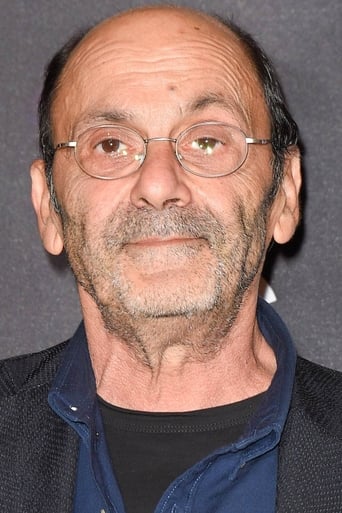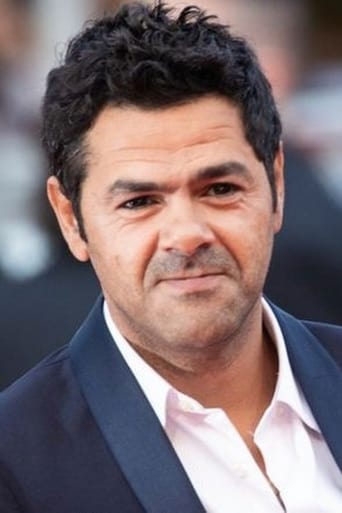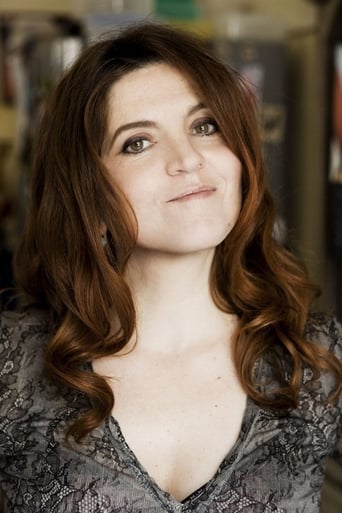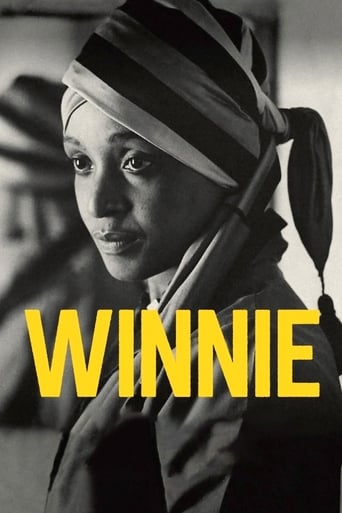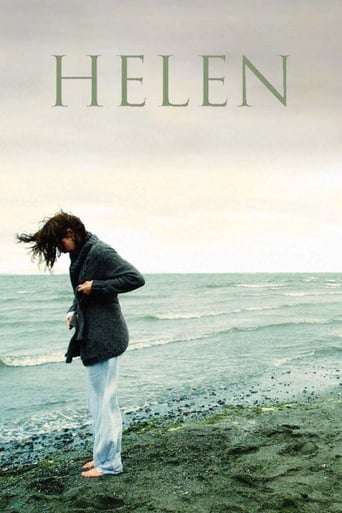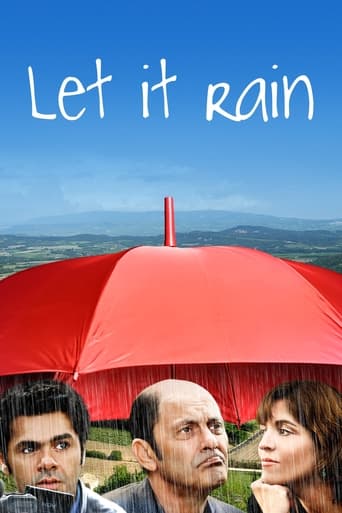
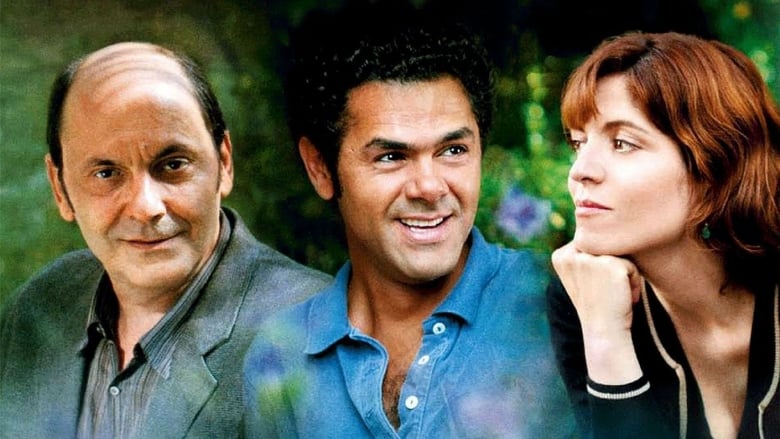
Let It Rain (2008)
Agathe Villanova is a self-centered, workaholic feminist politician who, upon reluctantly returning to her home in the south of France to sort out her mother's affairs, runs for a local election. Upon her arrival, Agathe grudgingly agrees to take part in a documentary being made by the blundering duo of Karim, an aspiring filmmaker, and self-professed "reporter" Michel, on the subject of "successful women." As Agathe's life hilariously unravels, the camera is there to capture it all.
Watch Trailer
Cast


Similar titles
Reviews
This was a flat movie. It is, briefly, the story of two sisters, one an author/feminist who is considering going into politics, the other "just a sister," who seems just to sit at home with her boyfriend, who is sort of flat too. A has-been movie director convinces the would-be politician to sit for a series of interviews, which go poorly. In between we see a little of the director's life with his son - he is divorced and his ex has custody, so he doesn't see his son often. We see a little of the romantic/private life of the feminist, whose boyfriend feels like he has become unnecessary in her life and leaves her. We see that the two sisters evidently have some unresolved issues concerning their mother, who passed away the year before. The housekeeper also evidently has some issues with her ex, but they aren't explored either. Nothing really is, and yet this movie goes on for a long time, or so it seems.There is no real character development for any of the characters. The dialog is not interesting. The few shots of Provence are nothing special. The movie, in short, is nothing special.Flat.
The story is set in a small town in the Midi, in France. Throughout the film, as the characters appear, they are revealed through dialogs they carry on with each other. So, as the film goes on, we have the feeling that things are rather stuck in this place.Michel, nearly fifty, aspires to be a reporter-filmmaker that he didn't succeed to be so far. It is, actually, a clumsy, nonchalant guy, who doesn't do right what he intend to, and relieves his frustration smoking joints. He is divorced, has a teenage son with whom he spends a weekend once in a while, and is having a future less affair with Florence's sister, Agathe, who is married to Stéphane.Florence, nearly forty, Agathe's sister, is married to Stephane. They have two children. But she feels miserable with her housewife life, along with a husband who has no energy to solve the shaky family financial situation. She seems to bet on her relationship with Michel to get free from her situation. This way of seeing the future makes her a kind of a bovarist.Karim, has qualities that were frustrated by his humble origins and perhaps also because he lived all his life in a small town where the opportunities are scarce. He is the son of a maid (Mimouna) born in the Maghreb, and who works for Florence and lives in the house of this latter. Karim works as a receptionist in a small and modest hotel, down town. He is skilled in film mounting and tries to get free of his mediocre situation as a receptionist, working on projects of Michel, who rarely reach an end, because of Michel style.Agathe, lives currently in Paris (she developed a career away from that Midi where things are rather stuck). She has a comfortable social position, and is successful professionally as a politician. She visits the small town where she spend her childhood, to tackle some political issues, and problems related with the heritage left by her mother. At the beginning of history, she looks like some one who is well resolved psychologically. But throughout the film we realize that this is not true. Her passage through the small town triggers the hole story.Mimouna, mother of Karim, comes from the Maghreb. She has been working for many years for the Villanova family, since when they lived in Algeria (?). In the past, she babysitted Florence and Agathe who have a strong relationship with her. She lives apart from her husband who abandoned the family in circumstances apparently nasty.
Let's Talk About the Rain is about as exciting and entertaining as, well, talking about the rain. Such a discussion may warrant some interesting insights into the person you are communicating with and in turn you may learn a little about yourself, but it certainly wouldn't go on for two hours. In what would have been a much more concise and in turn, poignant project, director Agnès Jaoui makes a fine impression here but also shows a lack of restraint in her ability to know when to cut apart her work. It can be lightly amusing and uplifting, insightful and has character work that puts many of this year's features to shame, yet it also lacks any momentum, or motivation; main character Michel Ronsard would say they are the same thing, and Jaoui neglects both. In the end the director's feature comes off as an exceptional study of character but one devoid of any significance outside of its practice. From beginning to end the performances and writing establish that Let's Talk About the Rain is strictly an academic exercise in documenting. A fine piece of character study, but lacking any resounding message or clear intent, Jaoui succumbs to the astute pointlessness that too often dominates such directors' work.With little to no plot at all, Let's Talk About the Rain tells the paper thin story of a group of individuals loosely connected through family, friends and colleagues. The central figures of this collage come in the form of incompetent documentary film-maker Michel Ronsard (Jean-Pierre Bacri), his talented assistant Karim (Jamel Debbouze) and their subject; a successful politician and feminist Agathe Villanova (Agnès Jaoui). Using these characters and those around them Jaoui does well to tell an engaging story that slowly unravels the layers of dynamism between her personalities, whether it is through friendship, family, business or most importantly, love. Moving at a snail's pace from beginning to end, it's easy to get a little despondent when watching Let's Talk About the Rain go over its incessant need to analyse and document the mundane and largely inconsequential moments that these characters share, yet there are also plenty of scenes which carry with them much more finely focused intent. Such moments will usually establish the best parts of these characters through their ultimate bonding either through a smile or even a kiss, and it's here that Jaoui shows her real talent for creating resonating character drama. Unfortunately, with a plot that fails to drive anything forward, an abundance of inconsequential indulgences stops the feature from ever taking off.The strongest element of this exercise comes in the form of Jaoui and her fellow cast members who all share a nice sense of chemistry between each other, and do just as well on their own too. Jean-Pierre Bacri gets the most chuckles here, playing the bumbling but well-intentioned film-maker who is too often a slave to his eyes and those around him. Jamel Debbouze plays it close to many of his previous works, conveying the rather withdrawn but intelligent and gifted assistant to Bacri. As good as he works with Bacri however, it is his scenes with Florence Loiret (who plays as his love interest outside of a neglected marriage) that serve as key highlights, culminating in a sentimental kiss scene that carries with it an astounding amount of feeling. Jaoui herself is spot on and obviously knows the ins and outs of her character enough to complement those around her and also to give the feature a sense of purpose that is too often lacking from the script. As a whole, the entire cast give flawless performances that do the best with what they are given to work with; which unfortunately isn't that much, but fulfils the purpose that Jaoui seems to striving for.Despite the many wonderful features of Let's Talk About the Rain however, the film too often falters beneath its own weight. Heavy with character but extremely light on plot, themes or discussion, Jaoui's script too often feels imbalanced the point of stultifying irrelevancy. It's an effort that would have served much fairer on a small screen and limited to half its run time, and as such there's no denying that a lot of what goes on here is shameful navel-gazing for the sake of exercise. Leaving a screening of Let's Talk About the Rain, one is likely to have a feeling of fulfilment, but at the cost of quite a few wasted minutes. Pristine in its development of character and performances, there's a lot to love about Jaoui's latest work, but a lack of focus and point leaves the experience needlessly tiring. Followers of slow, meditative character studies will get a kick out of what is present here, but patience is certainly required and as such all but the most avid of cinephilles would be best to give this one a miss; Jaoui is speaking to a small audience here.A review by Jamie Robert Ward (http://www.invocus.net)
Having been a huge fan of Jaoui and Bacri's films for many years, I have to admit I approach each one with a vague sense of trepidation in case they mess things up. I wasn't overly enamoured with their last film, Comme Une Image, as I felt Bacri's standard hapless-and-frustrated-but-ultimately-lovable character had become plain nasty and cruel. This time, I think they got it spot on all round. What I love about their films is that you can watch them again and again, taking something new from them with each viewing. Focusing on the minutiae of life whilst using delicate brush strokes to highlight the intricacies of human relationships via gentle but hilarious comedy is what they do best, and I found this film frequently hilarious. The actors are all superb, and the various characters give such a seemingly mundane story a depth not many films achieve, as French political life and its future are examined with a delicate touch by Jaoui, who credits her audience with much intelligence. The sight of an ambitious feminist politician leading a white middle-class man, a young French Arab and a flock of sheep down a hill, before the group get lost and are rescued by a pair of farmers, struck a chord with me, as did the relationship between Karim's mother and the bourgeois family for whom she works without being paid. There were some question marks, such as Karim's seemingly invisible wife he seemingly wants to cheat on when she herself appears affable and friendly, but overall it's a thought-provoking, entertaining and downright funny film.


